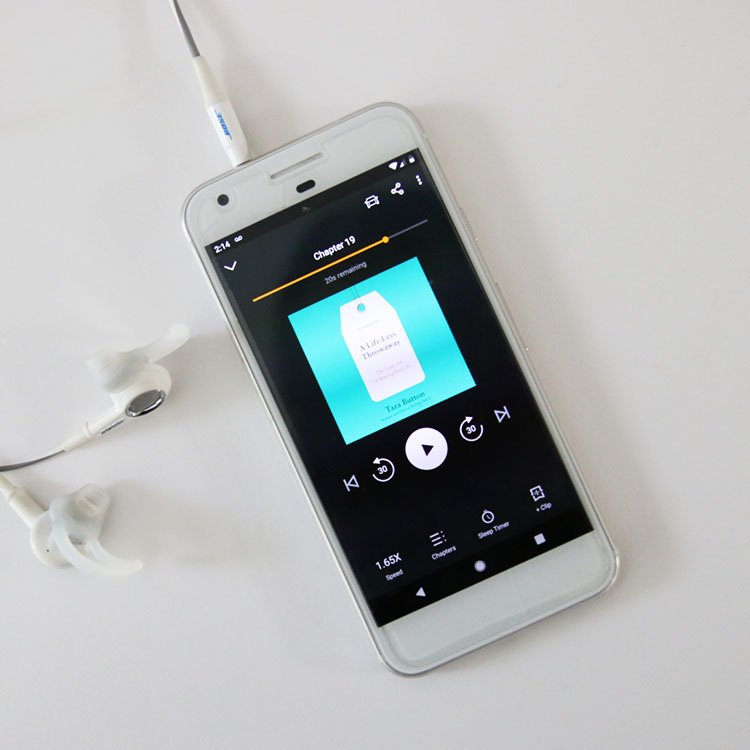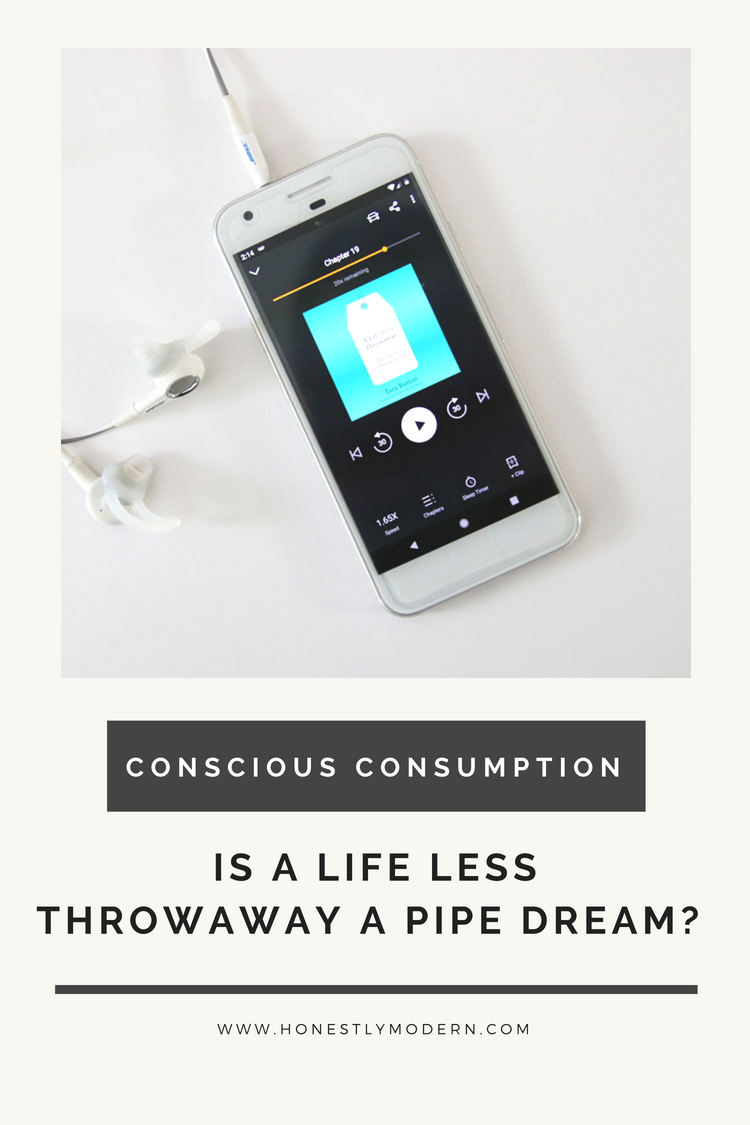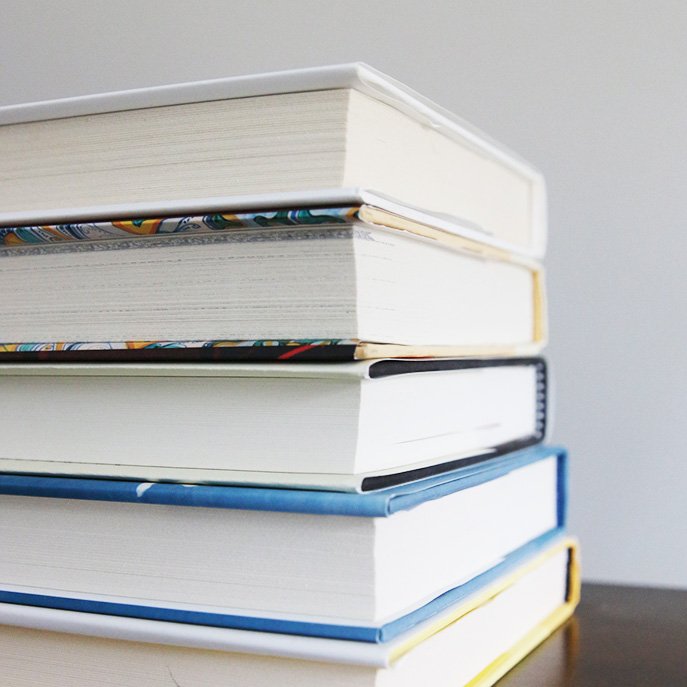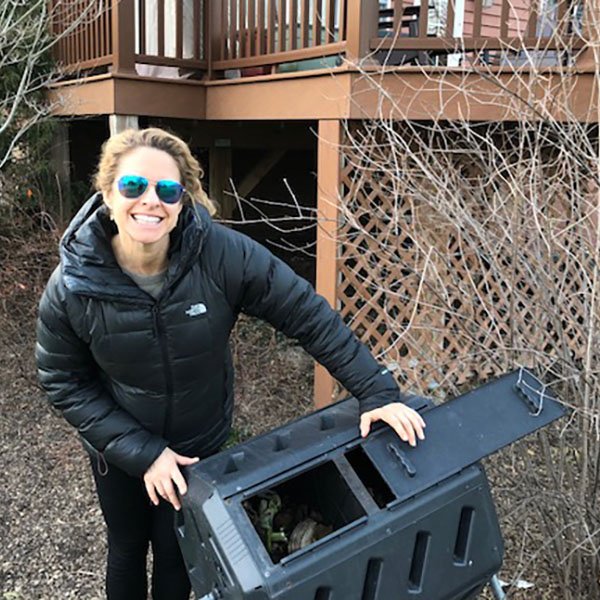Is A Life Less Throwaway A Pipe Dream?

Following the recommendation of Leah from Style Wise Blog, I recently listened to on Audible A Life Less Throwaway by Tara Button. At its core and as the title describes, the book discusses the disposable consumer habits that have taken over much of our lives. Because companies and social standards (not to mention governments) encourage us to continually buy more, we end up inundated with a life of things we don’t really love and that don’t bring us much value. In the process, we’re overloading our planet with insidious levels of waste and “stuff” that will far outlive us.
While Button offers some great ideas about how we can take control of our own actions and why it matters, the book didn’t leave me with a warm and fuzzy feeling.
On the contrary, the book left me feeling kind of … hopeless (and that’s really not my standard M.O.). As Leah mentioned in her review, Button offers an expansive and mindful set of tactics for individuals to employ to develop more sustainable and manageable habits of consumption. Her ideas are tangible and executable, but they are also time-consuming, require deep reflection, and demand consistent energy to continually fight off the status quo. She offers all these ideas after she details what we’re up against. That’s what left me feeling frustrated and questioning if there’s any hope of a better future for our world.
If we want to change our consumption habits, we’re up against the deep pockets and professional expertise of advertising agencies and large corporations. These entities have invested insane amounts of money to better understand how to get us to spend more money on cheaper crap that’s literally built to break. In the book, Button discusses the not-so-secret but rarely discussed fact that most companies make concerted efforts to shorten the lifespan of their products. Some do it strictly with cost-cutting measures in mind while others specifically intend to increase purchasing frequency; it’s kind of a “kill two birds with one stone” opportunity for companies looking to increase sales volume and margins. An ever-growing desire for immediate gratification paired with social expectations to ‘keep up with the Jones'” feeds this need to buy the cheaper products now. Even if we know the products won’t last, we opt not to wait until we can afford the more sustainable and longer-lasting alternative.
I’d be amiss not to mention the role that our governments play in encouraging consumption. They’re not shy to remind us that the economy depends on consumer spending, without which the world might stop turning.
I’m not suggesting corporations, advertising agencies or the government are bad. In fact, in many cases, they’re just doing what they were designed to do. Agencies serve their clients and are paid to increase sales. Corporations create profits for their shareholders. Governments believe that consumer spending keeps the economy moving and people happy. Everyone is following the near-term money, no doubt, but (in some respects) can you fault them?! To expect people, entities, and organizations to put the priorities of far-away stakeholders who sometimes won’t be affected until far in the future (i.e. workers in third world countries enduring subpar labor conditions or the state of the planet in fifty years) ahead of the present-day demands of their current clients, shareholders, and citizens is a really big ask.
I say this not to suggest that we can’t all be held accountable for our actions. We need to be held accountable, but the consequences of our actions related to sustainability are far from cut and dry. There are nuances in every major aspect of sustainability and multiple stakeholders involved, often with competing priorities. Further, it’s real people making decisions and enduring the consequences of those decisions, not heartless, soulless legal entities.
To me, the throwaway culture is like a snowball of society rolling down a winter mountain, gaining speed, strength and size with each roll. Button’s ideas provide a framework for an individual to escape from the snowball, but digging out and jumping from that snowball is hard and maybe even scary. What will other people think of you if you choose to take a road less traveled?
Further, it takes a lot of people fighting their way out of the snowball to have any real impact on slowing its trajectory and growth. In the end, I’m not sure mainstream masses are interested or willing enough to engage in the battle. Rolling in that snowball might make us dizzy and crazy, but the status quo often feels less intimidating than the alternative.
Changing the course of our throwaway culture will take a lot more than a hoard of dedicated humans reading and acting on her book. Button mentions shifts in spending to higher quality materials and production methods as well as more repair and maintenance services, not merely a decrease in spending on junk. Encouraging companies to think about shifting their revenue sources to more services, experiences, product maintenance and circular production instead of focusing solely on sales of current products should be a more favorable and realistic alternative. This allows companies to serve shareholders and more wide-reaching stakeholders.
I understand that Button’s ideas are a starting point for driving a change in consumption habits. We need sites like her Buy Me Once market to make it easier to find the best products and reduce the friction in the market that consumers feel when trying to vet the best products compared to the cheap alternatives. These are great and necessary first steps that make responsible consumption much easier, so I am hopeful that these exist. But really impacting the trajectory of our throwaway consumption requires changes to our social structures and status quos, our short-term stock market views that drive corporate behavior, and the immediacy of regulatory and legislative changes that citizens demand from policy changes, to name a few.
I liked A Life Less Throwaway, and I encourage everyone to read it. We can all benefit from being more thoughtful about what we bring into our lives and why. But I know it’s not the smoking gun to fixing our broken consumption habits, because it’s just too hard for the majority of people to execute. The exercises Button discusses are difficult, time-consuming and require dedication and introspection. I just can’t fathom the masses ever doing this. Maybe (hopefully) the book will go viral, but even then, that’s not enough to solve the problem.
We need to change the systems… not just hold individuals accountable to fight the status quo everyday. That’s a losing battle. I know we have a problem, but I really don’t know what the answer is … and that’s what makes me sad.









